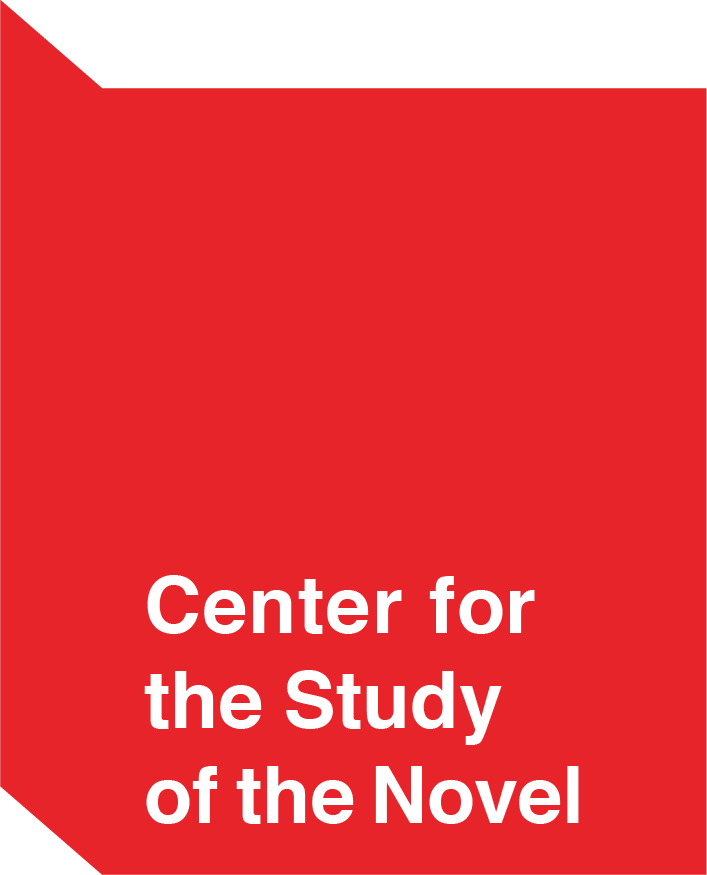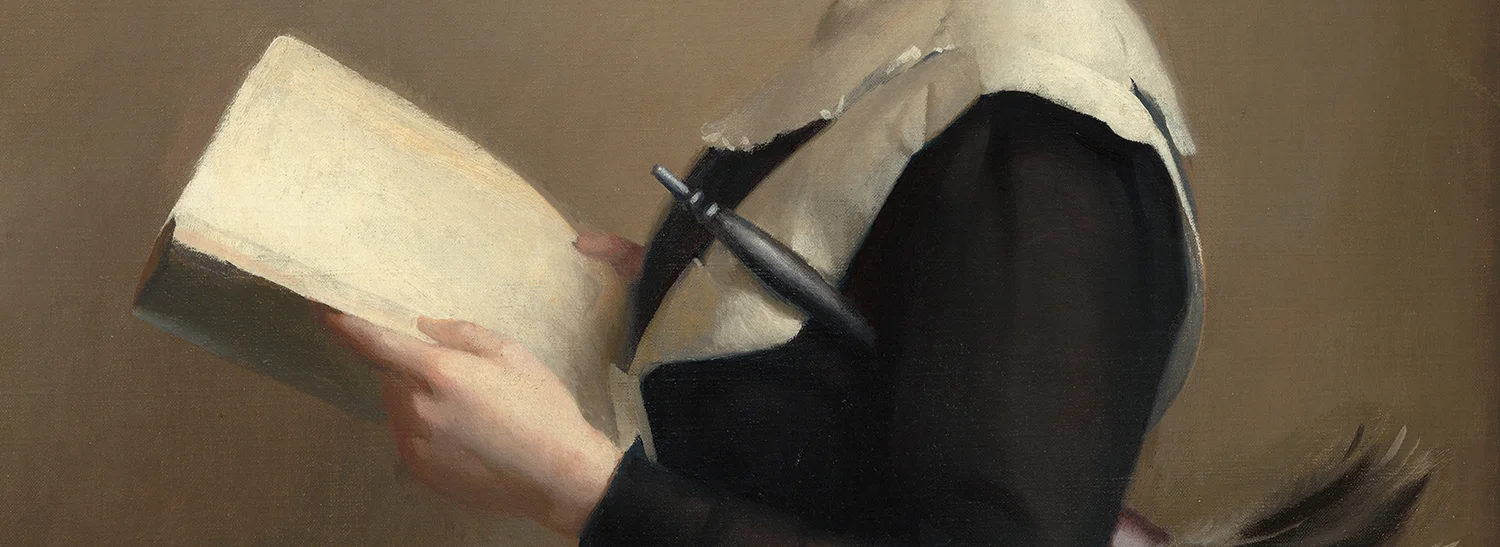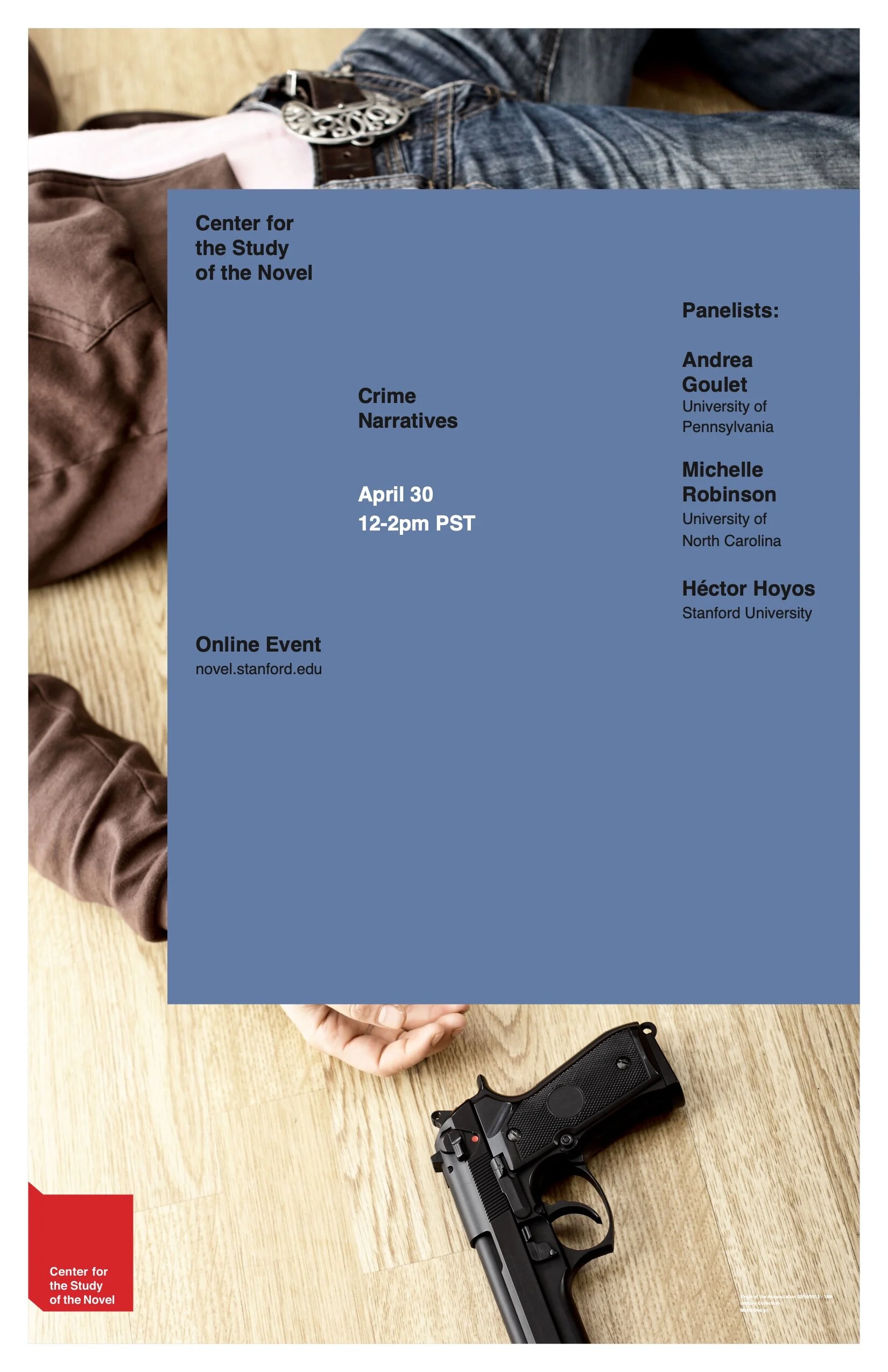Join us on Friday, April 30th for the “Crime Narratives” event at the Center for the Study of the Novel. We are delighted to welcome Andrea Goulet, Professor of Romance Languages at the University of Pennsylvania, Michelle Robinson, Associate Professor of American Studies at the University of North Carolina, and Héctor Hoyos, Associate Professor and Director, Iberian and Latin American Cultures at Stanford University.
Andrea Goulet:
The Yellow and the Black: Policing the Street in Modern French Crime Fiction
Gérard Delteil’s 2019 Les Écœurés bills itself as “le premier polar en gilet jaune,” the first crime novel to cross police investigation with the worker-led movement that recently made headlines in France. My talk takes Delteil’s yellow-vest noiras the starting-point for an analysis of the city street as site of intersection for private crimes and public insurrection, local policing and State intervention. By adapting a tradition that goes back to 19th-century street-name mysteries, the automotive noirs of the 20th and 21st centuries tug at the formal limits of the detective genre in order to reflect on urbanist violence and national unrest.
Michelle Robinson
Open Doors, Hung Juries, and Lucid Dreams in Mark Twain’s “Which Was It?”
Twain’s unfinished crime novel and dream-experiment “Which Was It?” (1899-1903) is best known for its most formidable invention: Jasper, a Black ex-slave who discovers incriminating evidence with which he extorts money from George Harrison, a highly respected white property owner in a strange hamlet called Indiantown. This paper argues that Jasper’s peculiar “reparations project” belongs to a larger geopolitical enterprise that reaches across the Pacific Ocean and into the China market. I track Twain’s efforts to chart the course of the U.S. expansionist project in this crime fiction; I also hint at how Pauline Hopkins got the genre right.
Héctor Hoyos
The Moral Revolution to Come: Chronicle of a Death Foretold and the Law of Honor
Gabriel García Márquez’s 1981 genre-bending crime novella has been both widely read and widely misread. In this revision, I analyze the book’s portrayal of the emergence of a “narrativity of the law” (Brooks) capable of overcoming honor killing through affect. The talk branches out from a co-authored monograph in progress on the unarticulated legal doctrine present in the author’s oeuvre.
The event will take place via Zoom, on April 30th at 12pm (PST). This is the link to register in advance.
This event is free and open to the public. All are welcome, and we hope to see you there!


